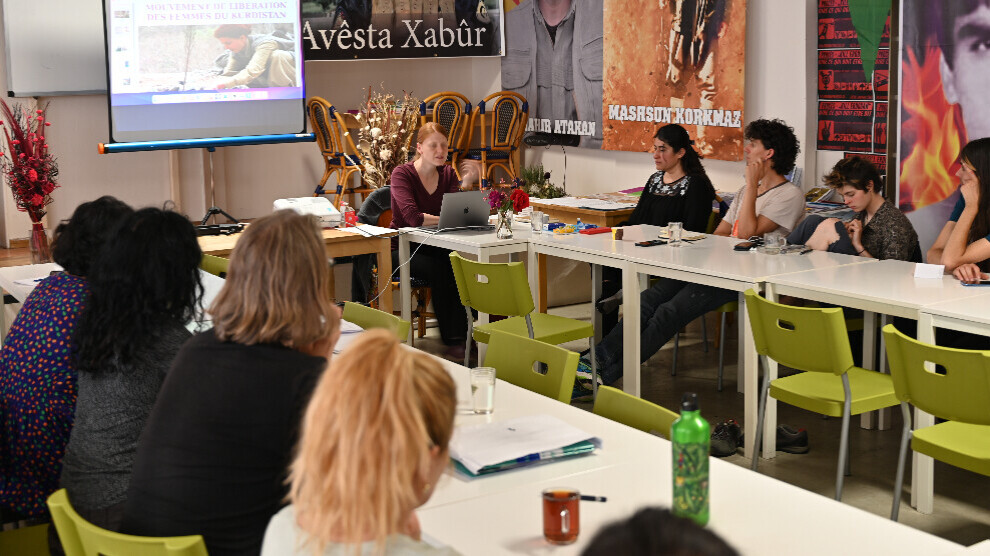Two-day Jineology seminar in Lausanne concluded
A two-day seminar organized by the Jineology Center in Brussels and Lajîn Women's Council active in the canton of Vaud was held at the weekend.
A two-day seminar organized by the Jineology Center in Brussels and Lajîn Women's Council active in the canton of Vaud was held at the weekend.

Jineology (Jineolojî), translated as "science of women," is a central component of the Kurdish liberation movement and plays a major role at the institutional level, especially in the Rojava revolution. Jineolojî views women's individual freedom as an indispensable prerequisite for the freedom of society as a whole and focuses on the study of society, history, religion, epistemology and many other areas from a woman's perspective. In doing so, Jineolojî does not limit itself to academic education, but builds centers, conducts seminars, and actively works to empower women at all levels. Jineolojî's research areas were established in northern and eastern Syria in 2015. Meanwhile, Jineolojî has spread to every institution and every aspect of life in northern and eastern Syria, from academies to schools and universities, the defense forces, and into grassroots councils and their commissions.
A two-day seminar jointly organized by the Brussels Jineology Centre and the Vaud Canton Lajin Kurdish Women's Council was held in Lausanne, Switzerland at the weekend. A workshop was conducted on the first day of the seminar, while a presentation was made on the history of women and the Kurdish people on the second day.
'CAPITALISM SEPARATES PEOPLE'
The coordinator of the seminar, activist Sarah Marcha of Brussels Jineology Centre, evaluated the activities of the seminar for ANF. Marcha stated that 15 people participated in the workshop on the first day and 20 people on the second day. The participants mostly discussed the history of women from the perspective of Jineology. “We conducted the workshop in Pôle Sud with the participation of Swiss women's organizations and migrant women's institutions. What received the most attention during the workshop was the fact that the male-dominated capitalist system champions individuality so that peoples, genders and individuals get separated and do not join forces. However, our differences do not divide us, but rather enrich our struggle against the system. We are like waters flowing from different sources and our struggle meets at the same point,” she said.
'WOMEN'S STRUGGLE AFFECTED THE WHOLE WORLD'
Marcha stated that they held the second day of the seminar at the Kurdish Cultural Association building in Lausanne. The participants discussed the history of women in Mesopotamia and their struggle in history. “We discussed the history of women because we need to get to know the women's struggle during the transition period from natural society to state society. It is necessary to understand the history of women's struggle. The 5,000-year-old struggle of women started in Mesopotamia and has affected the whole world over the course of history. It is important to get to know this history. Finally, we had a workshop during which we discussed what freedom means to us,” Marcha said.
SEMINARS WILL CONTINUE
Mancha expressed that she was happy about the intense interest in the seminar and Jineology, adding that the Jineology Seminars would continue. “During the seminar, topics such as the right to shelter, ecofeminism, afro feminism, decolonial struggles, anti-racism and police violence were discussed. There is serious interest in Jineology. These workshops will continue, and we will have another seminar in Rennes, France, two weeks later,” she said.
During the seminar, a speech by Kurdish revolutionary Aysel Doğan, who recently passed away in Germany, on a documentary about Sakine Cansız, who was murdered with her two colleagues in Paris, was screened.